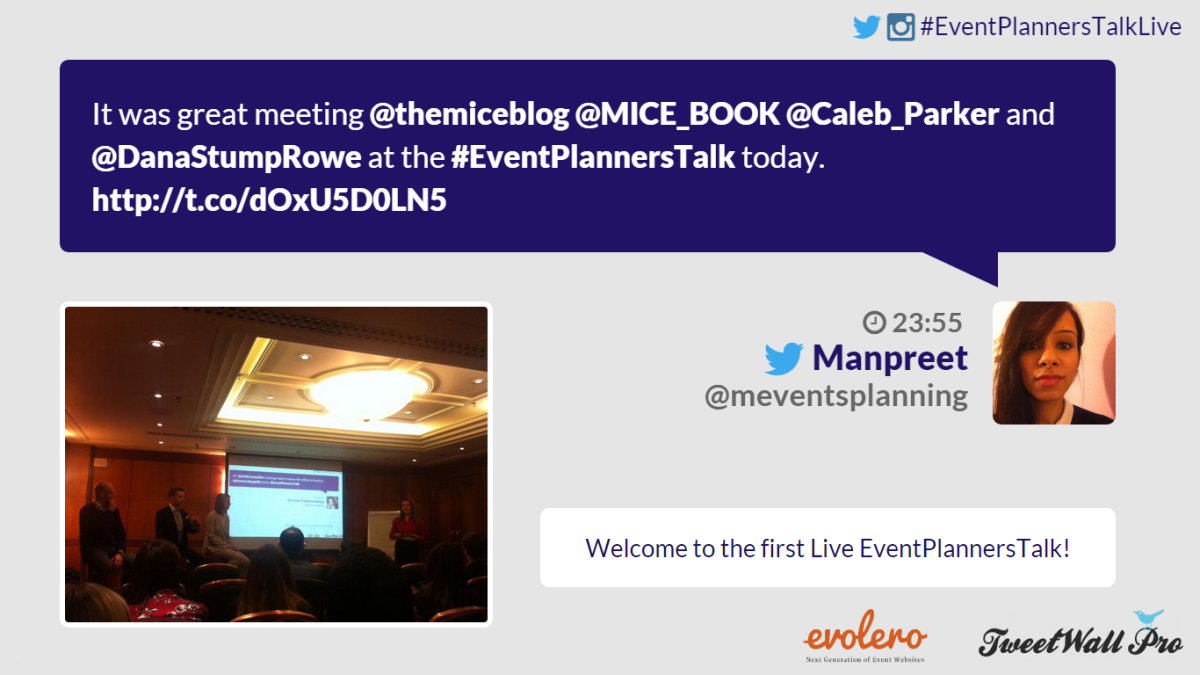It’s not new that we often have tight budgets to organise events. Most of the places I worked at always insisted to find cost effective ways to get everything done. I became so conscious not spending money on unnecessary things and exploring all possible options that I think twice before I take financial decisions.
Starting out with #EventPlannersTalk LIVE events I also had to keep costs down, not taking high financial risks, and with some creativity and good research it’s definitely possible.
So before you start budgeting for website, branding, registrations platforms and other expenses, here are some ideas how to keep your costs down.
Build an event website
First thing you need to do is to build an event website. If you decide to go with an agency they will charge you anything starting from three figures, depending on your requirements and probably add monthly hosting fee.
Before going to an agency, try and create a website yourself. Buy your domain from any host, it can cost as little as £10 per year and set up your website using one of the common platforms such as wordpress.org or wix.com (Wix has even event templates).
It might be scary at first, but it’s so easy and will take you only few hours to get it up and running.
Choose three social media channels
Social media is the most cost effective way to promote your events. While it’s free, you need to invest time in promoting your event online and interacting with your audience.
It can be very time consuming so don’t jump on every social media channel out there. Evaluate where your audience is and invest your time in few platforms. From experience three is the right number of platforms to reach out to your target audience and still have the capacity to keep them up to date.
Use scheduling tools wisely
Social media brings me to the next point, scheduling tools. There are numerous free of charge scheduling tools you can use to push out your content. Up to certain limit it’s for free and afterwards each platform offers different billing plans, depending on number of accounts you manage, how much content you want to schedule and offers more extensive analytics for paying customers.
I personally don’t like scheduling content (e.g. – blog posts) as after trying it I realised that for me there is no difference between real time posting and scheduling – I got same interaction, same traffic and most importantly I can respond real time when I don’t schedule.
The only content I have to schedule is #EventPlannersTalk Twitter chat questions and I’m online at the same time participating. The tools I use are Tweet Deck and Buffer. Buffer offers a great feature to repost the content you’ve posted already with an option to edit the text.
Prepare a case study to get sponsors
Sponsors are key to every event but the reality is it’s very hard to get them on board, especially when you’re starting out. Lower your expectations and try first of all get in-kind sponsorship, e.g. – partner with an event technology platform.
Sponsors will ask you about your audience – their companies and titles, traffic to your website, outreach on social media etc., to justify their ROI. Therefore you might need to run few events before having all these analytics in place to present a credible case study and be clear on what type of exposure you can offer them.
Grow your mailing list organically
Targeted mailing is an effective way to spread out the word about your event and sell tickets. Best way is to have a sign-up option on your website or blog and grow your email list organically. That way you’ll have higher open and engagement rates, which is what really matters.
There are free mailing tools, most popular and one I have experience with is Mailchimp and it’s free for up to 2,000 subscribers. It provides good analytics and their plugin is compatible with wordpress (that’s what I’m using) and I’m sure with many other platforms.
Consider booking your venue last minute
If you’re ready to put up an event last minute, you’ll have a good chance getting a good price for venue hire. When the event is in short notice, venues know that they are risking not selling out the space and they better take your offer. Additionally, try to look for less busy days, such as Mondays or Tuesdays when venues have less business.
When you are confident of getting a venue last minute, you can also keep the venue as a surprise element, announcing it only 2 – 3 weeks before the event!
Do you have other cost saving tips for event planners?





Preparing a case study is a great way to get sponsors. Thank you for all the helpful tips, Irina!
Thank you I’m definitely thinking of setting up an event invite this time. My company is booked in at a business centre in Birmingham in a few months and I really want to get as many people there to make it a success
The article has some really helpful tips! Event technology can help you save a lot of time and money. Another way to save up would be to opt for an all-in-one event software that offers a variety of services, from registrations to scheduling. You can choose and pick the features that your event needs. Here’s an article I did on event budgeting, if you don’t mind checking it out: https://blog.hubilo.com/10-commandments-event-budgeting/. Great article!
Thank you very much for sharing a great information.
I was really looking for such informative article .
Thank you for posting this helpful blog .
Appreciate the helpful and informative content. Thanks!
This article is truly outstanding with valuable information.
I read your blog post and it was amazing they are full of information .
This is such an interesting article.
This is such an interesting article. It will help everyone to make better decisions